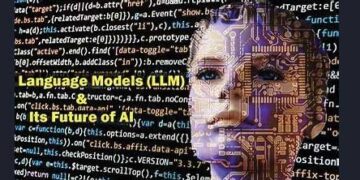 In the rapidly evolving landscape of technology, the advent of generative artificial intelligence (AI) has ushered in a paradigm shift that promises to revolutionize virtually every aspect of our lives. From creative endeavors to scientific breakthroughs, and from business operations to personal assistants, generative AI is poised to redefine the boundaries of what is possible. However, as with any transformative innovation, the responsible integration of this technology into our society hinges on public understanding, engagement, and active participation in shaping its trajectory.
In the rapidly evolving landscape of technology, the advent of generative artificial intelligence (AI) has ushered in a paradigm shift that promises to revolutionize virtually every aspect of our lives. From creative endeavors to scientific breakthroughs, and from business operations to personal assistants, generative AI is poised to redefine the boundaries of what is possible. However, as with any transformative innovation, the responsible integration of this technology into our society hinges on public understanding, engagement, and active participation in shaping its trajectory.
Generative AI, a subset of artificial intelligence, refers to systems capable of generating new content, such as text, images, audio, or code, based on the data they are trained on. These systems leverage advanced machine learning algorithms and vast datasets to create original outputs that mimic human-like creativity and problem-solving abilities. The implications of this technology are far-reaching, with the potential to disrupt industries, augment human capabilities, and unlock new frontiers of innovation.
One of the most compelling aspects of this technology is its ability to augment human creativity and productivity. Writers, artists, and designers can harness the power of these systems to generate ideas, explore new creative avenues, and streamline their workflows. In the realm of scientific research, generative AI can accelerate the discovery process by analyzing vast amounts of data, identifying patterns, and generating hypotheses that human researchers can then investigate further.
Moreover, generative AI has the potential to revolutionize industries such as healthcare, education, and customer service. Imagine a future where AI-powered virtual assistants can provide personalized medical advice, tailored educational experiences, or seamless customer support, all while continuously learning and adapting to individual needs.
As with any transformative technology, generative AI also raises legitimate concerns and ethical considerations. Issues such as bias, privacy, and the potential displacement of human labor must be addressed proactively and responsibly. It is imperative that we, as a society, engage in open and informed discussions about the implications of generative AI, ensuring that its development and deployment align with our values and prioritize the well-being of humanity.
This is where the public’s understanding and engagement become crucial. We cannot afford to be passive observers as generative AI reshapes our world. Instead, we must actively participate in the discourse, contribute our perspectives, and help shape the ethical frameworks and governance models that will guide the development and application of this technology.
Overview
Over the past year I have been teaching seminars on the use of LLMs for social impact and I remain surprised at how many people are not engaging with the technology. At a minimum, I hope to encourage more people to experiment with free models such as Gemini, ChatGPT and Claude. Perpelexity uses a subscription model, but it is also worth trying.
Here is a summary of major large LLMs:
•ChatGPT is an LLM developed by OpenAI based on the GPT-3.5 architecture. It has gained immense popularity for its ability to engage in human-like conversations, answer follow-up questions, and assist with a wide range of tasks like writing, coding, and analysis. The more advanced GPT-4 model powers a paid version of ChatGPT.
•Gemini is Google’s conversational AI chatbot powered by their LLM of the same name. While details are limited, Gemini is reported to use advanced language understanding and generation capabilities to engage in open-ended dialogue.
•Claude is an LLM developed by Anthropic that emphasizes transparency, honesty, and ethical behavior. It aims to provide reliable information while avoiding harmful outputs. Claude has a strong grasp of complex topics and can engage in substantive conversations.
•Perplexity is a conversational AI assistant created by Perplexity AI. Like other LLMs, it can understand and respond to natural language queries, but it particularly emphasizes providing concise, high-quality responses backed by relevant citations from provided search results.
While capabilities vary, these LLMs showcase the remarkable progress in natural language processing and generation. They can engage in contextual dialogue, answer questions, generate content, and even code – though they still have limitations around factual accuracy, bias, and lack of true reasoning abilities. As the technology rapidly evolves, LLMs are expected to become more capable, specialized, and integrated into various applications and services.
Engage
This dramatic growth demands that we prioritize AI literacy and education at all levels. From primary schools to universities and adult education programs, we must equip individuals with the knowledge and critical thinking skills necessary to comprehend the intricacies of generative AI. This includes understanding the underlying principles, recognizing potential biases and limitations, and appreciating the ethical and societal implications.
Furthermore, we must foster open and inclusive dialogues that bring together diverse stakeholders, including policymakers, researchers, industry leaders, ethicists, and members of the public. These conversations should address the challenges and opportunities presented by generative AI, explore potential solutions, and inform the development of responsible governance frameworks.
By actively engaging with generative AI, we can shape its trajectory to align with our values and aspirations. We can ensure that these systems are designed and deployed in a manner that respects privacy, promotes fairness and inclusivity, and safeguards human autonomy and agency. Additionally, we can leverage generative AI to tackle pressing global challenges, such as climate change, healthcare disparities, and sustainable development, harnessing its potential to generate innovative solutions and accelerate progress.
Public engagement can also drive the development of generative AI systems that are transparent, explainable, and accountable. By demanding transparency and interpretability, we can ensure that these systems operate in a manner that is understandable and auditable, fostering trust and enabling effective oversight.
Ultimately, the future of generative AI is not predetermined; it is a canvas upon which we, as a society, can paint our collective vision. By embracing this technology with open minds and active participation, we can harness its potential to enhance human capabilities, drive innovation, and create a better world for all.
The rise of generative AI presents us with a pivotal moment in human history. We can either passively observe its development and risk being swept away by its transformative power, or we can actively engage, shape its trajectory, and ensure that it serves the greater good of humanity. The choice is ours, and the responsibility lies with each one of us to be conversant in AI, to contribute our perspectives, and to actively participate in shaping the future we envision. Only through collective understanding, engagement, and proactive action can we truly unlock the vast potential of generative AI while safeguarding our values, ethics, and the well-being of society.
Tune into our weekly conversation and share your comments via Twitter to @Tusnik or on LinkedIn with @TobyUsnik.
































